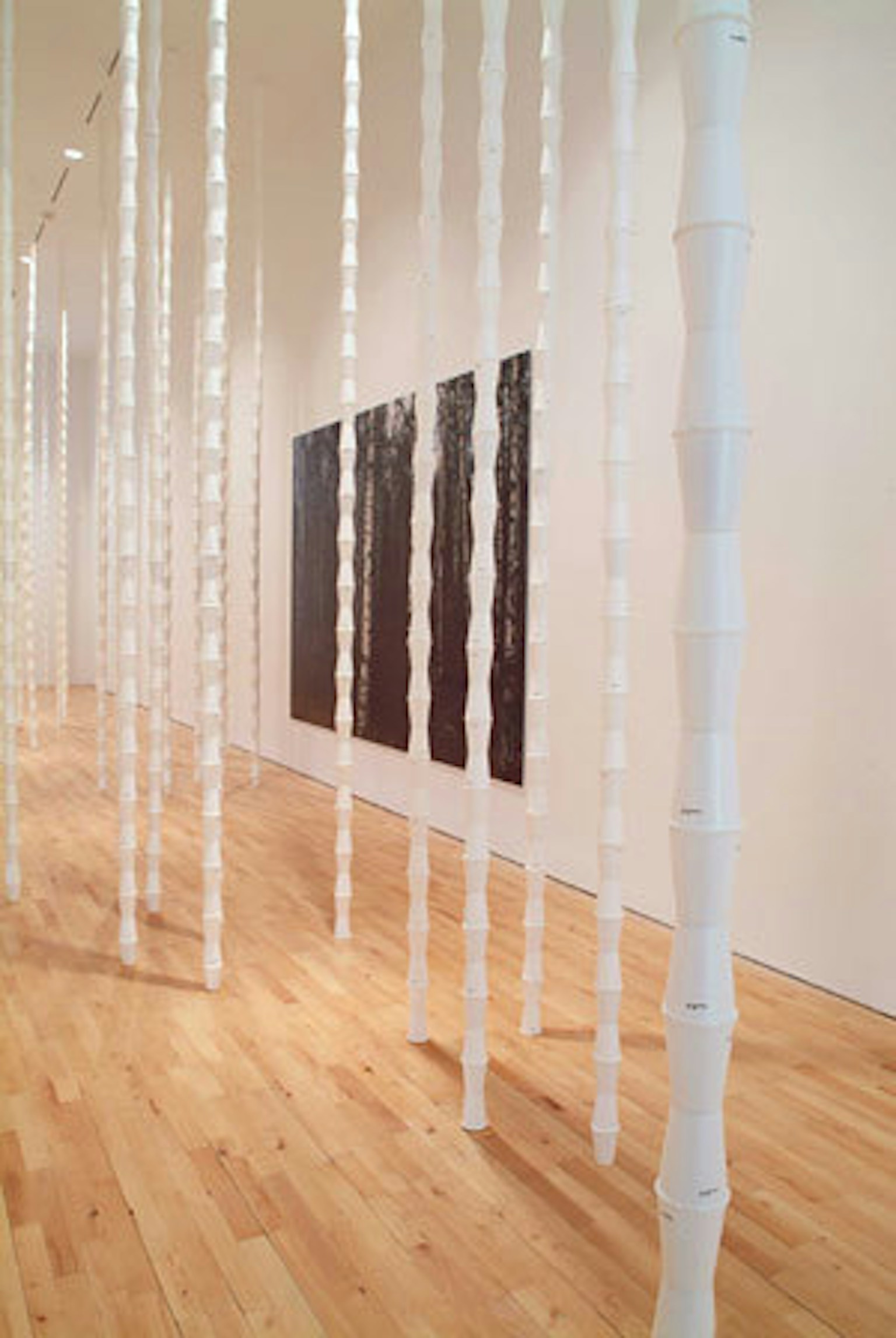Since they were students, Rindfleisch (b. Hannover, 1975) and Rapedius (b. Norden, 1973) have always worked as an artistic duo.
Their work is in the first place characterised by their enthusiastic use of a very wide range of materials. Such everyday objects as paper cups, coffee-cup lids, plastic film, cardboard and adhesive tape often provide direct inspiration for their work. In the way they deal with and subtly rework these banal materials, Rapedius/Rindfleisch transform their meaning into a poetic, sometimes even highly ‘classical’ aesthetic image, which immediately triggers a number of associations in the viewer. In this way they aim to convert the ordinary and trivial, which most of us overlook, into a new image that far transcends banality and has its own almost lyrical poetry.
As far as their visual idiom is concerned, Rapedius/Rindfleisch are very much aware of the fact that as artists they belong to a system and/or structure in which the criterion of ‘originality’ usually reigns supreme. After all, in many cases a work of art has to be ‘innovative’, original or valuable. In contrast to this accepted practice, Rapedius/Rindfleisch are convinced that this is simply impossible. Only a few works of art are original, let alone valuable. This conviction is emphasised in their work by their use of series, meaning repetition, and banal everyday materials, two aspects that form an inherent part of the minimal and conceptual art of the sixties and seventies. In this way any impression of ‘originality’ in the sense of innovation is skilfully negated. Which of course does not mean that their work is not innovative or valuable, on the contrary. After all, the art lies not in the work of art, the end product, but in the creativity and flow of ideas that precedes its creation. It is the creativity that enables something valuable to arise out of something banal and worthless. Both their handling of materials and their ideas on what art ought to be make Rapedius/Rindfleisch one of the most modest young artistic duos of recent years, in terms of both their art and their character. After all, their work does not avoid such major themes as ecology, recycling and the contrast between nature and culture, but treats them in a modest, sometimes ironically humorous way, without falling into the trap of the great, (pseudo)intellectual discourse that often envelops art. Their installation Papierwald, for example, which they are presenting in the Kunst Nu rooms, displays strong links with these big themes, but in a very spontaneous, unconstrained way. This work consists largely of ‘tree trunks’ made of thousands of white disposable paper cups, accompanied by a monumental life-sized photo of a birch wood. The idea behind this monumental forest, constructed entirely in disposable material, refers to the contrast between nature and culture, in which the paper cups, which originate from wood and therefore in the first place destroy nature, are as it were ‘given back’ to nature and in this way the circle is completed. The cups are recycled for nature in the purest sense, and not for industry and its pollution as is usually the case. And yet this installation is not polemic or ‘pretentious’. It does not make great pronouncements or statements on pollution, recycling or ecology. On the contrary, by subtly combining two seemingly opposing elements (mass production versus nature), the artists create a very poetic, almost lyrical image which in the first place emphasises the beauty of the two opposing materials. Their main purpose is after all to achieve poetry in their images, poetry which is more than the sum of the ‘banal’ constituent parts, and which by way of this poetry themselves lead one to change things or to see things differently. If the image is powerful enough in itself, the interpretation of its impact will come naturally... Rapedius/Rindfeish

